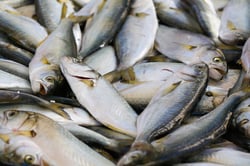
Piscicide causes alarming increase in Parkinson's development.The toxin "rotenone" was claimed to only be toxic to fish and not in humans. Workers who distributed the chemical into the water were told protective clothing was not needed because it was so harmless.
After watching the bodies of tens of thousands of fish convulse until their bodies grew lifeless at the surface. Both of the hydrologists who worked with the chemical that night were diagnosed with Parkinson's disease within two years of the exposure.
Workers in fishery management continue to argue against the dangers of this poisonous chemical while doctors and scientists counter that argument. The managers continue to claim that it is safe and necessary for their work.
The potential link between rotenone and Parkinson’s was studied well before the Chicago canal incident. In 2000, a study published in Nature Neuroscience showed that “chronic, systemic exposure” to rotenone in rats induced Parkinson’s-like symptoms by inhibiting the brain’s ability to produce energy for cell function.
Retenone has been used since 1947 as an insecticide and piscicide and the U.S. Environmental Protection Agency has asked manufacturers to cancel their use of it in agriculture and in homes. Although its safety has been questioned since the mid-70's if has still been used in gardening products, treats dog fleas and is rubbed directly onto produce.
A study conducted in 2011 found that exposure to this "safe" chemical led to a two and a half times higher rate of developing Parkinson's then those not exposed.
Although genetic factors play a role in risk of the onset of Parkinson's, this disease is increasingly becoming more linked to environmental factors.
Even Agent Orange was believed to be safe for humans at one point.
People with Parkinson's have sleep disturbances, decreased sense of smell, gastrointestinal issues, sexual function issues, depression, systemic weakness, slow thinking and some scaling itching spots on the face called seborrheic dermatitis. As the disease progresses other symptoms appear like: difficulty swallowing, acid regurgitation, hypersalivation, constipation and incomplete bowel empyting. SIBO or small intestine bacterial overgrowth is also associated with Parkinson's. We have SIBO test kits, toxic urine metal kits and comprehensive stool function kits in the CT. office.
The gut is where I begin treatment. We remove all gluten, most grains and dairy out of the diet. Processed carbohydrates aggravate SIBO and don't allow leaky gut mucosa to heal properly. High-protein foods block the absorption of the main Parkinson's medications - Levadopa or L-dopa which affects their efficacy. I also test for Herpes 6 and elevated heavy metals with an eye on mercury. The golden triangle in Parkinson's is poor gut function, high viral loads, previous exposure to pesticides and elevated mercury.
Because of poor gut function I strongly recommend I.V. therapies. Ozone chelation and I.V. glutathione both improve function while we are healing the gut with L-glutamine, fish oils, NAC, turmeric, probiotics, gelatin, phosphatidyl choline and resveratrol.
If you want to read the full story that inspired this blog follow this link: http://www.santafenewmexican.com/news/health_and_science/two-hydrologists-blame-toxin-used-to-kill-fish-for-parkinson/article_989d0374-0f6b-5b8a-bf36-53a07561feae.html
Putting the Pieces Together for Parkinson's


